- Home
- Categories
- Non Fiction
- Education and Reference
- Honor-bound to Pakistan in Duty, Destiny & Death - Iskander Mirza
Honor-bound to Pakistan in Duty, Destiny & Death - Iskander Mirza
By: Syed Khawar Mehdi
-
Rs 2,700.00
- Rs 3,000.00
- 10%
You save Rs 300.00.
Due to constant currency fluctuation, prices are subject to change with or without notice.
For various reasons, Iskander Mirza's memoirs could not be published in book form and, after more than half a century, they are being published in their totality. The memoirs lay open the facts for the people of Pakistan, historians and academics to judge the man who was a trusted lieutenant of Quaid-e-Azam and, while in Indian Political Service, secretly worked with Jinnah (who fully recognized the invaluable potential in the young Deputy Commissioner of Peshawar) towards the most challenging task of achieving Pakistan from the British.
In all fairness, General Ayub may not have been behind it all but the sycophants were in a stampede outdoing each other in casting aspersions on Iskander Mirza's financial propriety, his integrity and character. Such was the national atmosphere that structured average Pakistani's mindset for their first President and will be a miracle if this book, if not change, can at least initiate a debate on historical distortions, disinformation and withholding of important documented accounts that may not have gone down well with sitting government of the time to suit a certain ideology or, more dangerously, the planting of fake information to serve ulterior agendas.
For various reasons, Iskander Mirza's memoirs could not be published in book form and, after more than half a century, they are being published in their totality. The memoirs lay open the facts for the people of Pakistan, historians and academics to judge the man who was a trusted lieutenant of Quaid-e-Azam and, while in Indian Political Service, secretly worked with Jinnah (who fully recognized the invaluable potential in the young Deputy Commissioner of Peshawar) towards the most challenging task of achieving Pakistan from the British.
In all fairness, General Ayub may not have been behind it all but the sycophants were in a stampede outdoing each other in casting aspersions on Iskander Mirza's financial propriety, his integrity and character. Such was the national atmosphere that structured average Pakistani's mindset for their first President and will be a miracle if this book, if not change, can at least initiate a debate on historical distortions, disinformation and withholding of important documented accounts that may not have gone down well with sitting government of the time to suit a certain ideology or, more dangerously, the planting of fake information to serve ulterior agendas.
Honor-bound to Pakistan in Duty, Destiny & Death - Iskander Mirza
By: Syed Khawar Mehdi
Rs 2,700.00 Rs 3,000.00 Ex Tax :Rs 2,700.00
Zubin Mehta: A Musical Journey (An Authorized Biography)
By: VOID - Bakhtiar K. Dadabhoy
Rs 892.50 Rs 1,050.00 Ex Tax :Rs 892.50
Asterix and The Missing Scroll: Album 36
By: Jean-Yves Ferri
Rs 2,065.50 Rs 2,295.00 Ex Tax :Rs 2,065.50
The World of Agatha Christie: A Jigsaw Puzzle
By: Agatha Christie
Rs 5,125.50 Rs 5,695.00 Ex Tax :Rs 5,125.50
1964 Land Rover Series IIA 500-Piece Puzzle (Artisan Puzzle, 5)
By: Matt Hranek
Rs 3,395.75 Rs 3,995.00 Ex Tax :Rs 3,395.75
Viva Dictionary Of Punctuation And Hyphenation
By: William Gould
Rs 127.50 Rs 150.00 Ex Tax :Rs 127.50
And Another Thing... (The Hitchhiker's Guide to the Galaxy)
By: Eoin Colfer
Rs 355.50 Rs 395.00 Ex Tax :Rs 355.50
Collins Pocket Italian Dictionary
By: Collins Dictionaries
Rs 1,847.50 Rs 3,695.00 Ex Tax :Rs 1,847.50
Asterix and The Missing Scroll: Album 36
By: Jean-Yves Ferri
Rs 2,065.50 Rs 2,295.00 Ex Tax :Rs 2,065.50
The World of Agatha Christie: A Jigsaw Puzzle
By: Agatha Christie
Rs 5,125.50 Rs 5,695.00 Ex Tax :Rs 5,125.50
1964 Land Rover Series IIA 500-Piece Puzzle (Artisan Puzzle, 5)
By: Matt Hranek
Rs 3,395.75 Rs 3,995.00 Ex Tax :Rs 3,395.75
Twice As Good Condoleezza Rice And Her Path To Power
By: Marcus Mabry
Rs 1,127.95 Rs 1,327.00 Ex Tax :Rs 1,127.95
Genesis Artificial Intelligence Hope and the Human Spirit
By: Eric Schmidt
Rs 4,945.50 Rs 5,495.00 Ex Tax :Rs 4,945.50
The Idle Stance of the Tippler Pigeon
By: Safinah Danish Elahi
Rs 1,705.50 Rs 1,895.00 Ex Tax :Rs 1,705.50
How the Light Gets In - (a Chief Inspector Gamache Mystery Book 9)
By: Louise Penny
Rs 2,065.50 Rs 2,295.00 Ex Tax :Rs 2,065.50
The Contours of American History
By: William Appleman Williams
Rs 7,645.75 Rs 8,995.00 Ex Tax :Rs 7,645.75
Wash Your Fins, Baby Shark! Doo Doo Doo Doo Doo Doo (BB)
By: John John Bajet
Rs 1,525.75 Rs 1,795.00 Ex Tax :Rs 1,525.75
Murdon Ki Sarai maut Ka Taaqub Book 8
By: Muhammad Saleem ur Rehman
Rs 169.15 Rs 199.00 Ex Tax :Rs 169.15
3S Translation of the Holy Quran (between the lines with short footnotes)
By: Idara Tarjuman ul Quran
Rs 3,595.50 Rs 3,995.00 Ex Tax :Rs 3,595.50
Untitled: The long-awaited memoir of legendary Lionel Richie
By: Lionel Richie
Rs 3,865.50 Rs 4,295.00 Ex Tax :Rs 3,865.50
Shadowcaster: 2 (Shattered Realms, 2)
By: Cinda Williams Chima
Rs 1,015.75 Rs 1,195.00 Ex Tax :Rs 1,015.75
My Hero Academia Volume 4: The Boy Born with Everything
By: Kohei Horikoshi
Rs 2,375.75 Rs 2,795.00 Ex Tax :Rs 2,375.75
Damage: INSPIRATION FOR THE NETFLIX SERIES OBSESSION
By: Josephine Hart
Rs 2,245.50 Rs 2,495.00 Ex Tax :Rs 2,245.50
Last Resort - A New York Times Editor's Pick
By: Andrew Lipstein
Rs 2,245.50 Rs 2,495.00 Ex Tax :Rs 2,245.50
The Saad Truth about Happiness - 8 Secrets for Leading the Good Life
By: Gad Saad
Rs 5,605.75 Rs 6,595.00 Ex Tax :Rs 5,605.75
One Bullet Away - The Making of a Marine Officer
By: Nathaniel Fick
Rs 2,515.50 Rs 2,795.00 Ex Tax :Rs 2,515.50
The Lost Lover Book The Wild Isle Series 3
By: Karen Swan
Rs 3,415.50 Rs 3,795.00 Ex Tax :Rs 3,415.50
The Width of the World (Vega Jane) - Paperback
By: David Baldacci
Rs 930.75 Rs 1,095.00 Ex Tax :Rs 930.75
Classic Collection Robinson Crusoe (Book Depot Only)
By: Saviour Pirotta
Rs 930.75 Rs 1,095.00 Ex Tax :Rs 930.75
My First Book of Colours: 1 (Scholastic Early Learners)
By: Scholastic Inc
Rs 1,270.75 Rs 1,495.00 Ex Tax :Rs 1,270.75
Zubin Mehta: A Musical Journey (An Authorized Biography)
By: VOID - Bakhtiar K. Dadabhoy
Rs 892.50 Rs 1,050.00 Ex Tax :Rs 892.50
Honor-bound to Pakistan in Duty, Destiny & Death - Iskander Mirza
By: Syed Khawar Mehdi
Rs 2,700.00 Rs 3,000.00 Ex Tax :Rs 2,700.00
Asterix and The Missing Scroll: Album 36
By: Jean-Yves Ferri
Rs 2,065.50 Rs 2,295.00 Ex Tax :Rs 2,065.50
The World of Agatha Christie: A Jigsaw Puzzle
By: Agatha Christie
Rs 5,125.50 Rs 5,695.00 Ex Tax :Rs 5,125.50
1964 Land Rover Series IIA 500-Piece Puzzle (Artisan Puzzle, 5)
By: Matt Hranek
Rs 3,395.75 Rs 3,995.00 Ex Tax :Rs 3,395.75












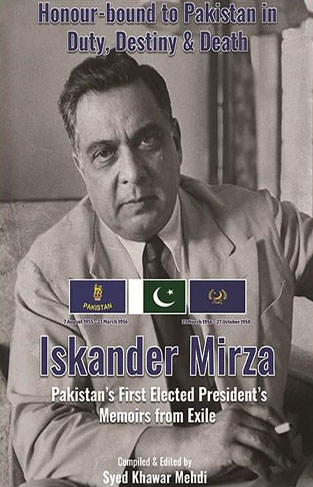
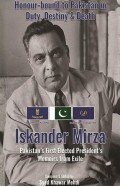
-120x187.jpg?q6)





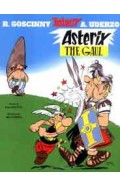
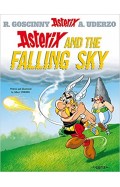
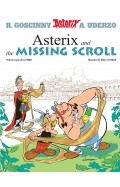




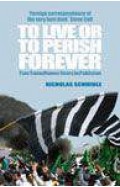

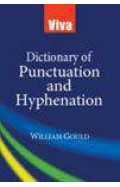





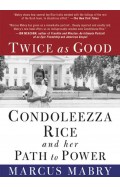



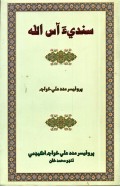
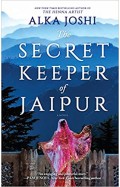














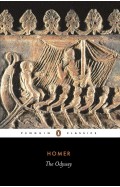




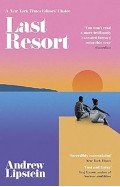










-Paperback-120x187.jpg?q6)



